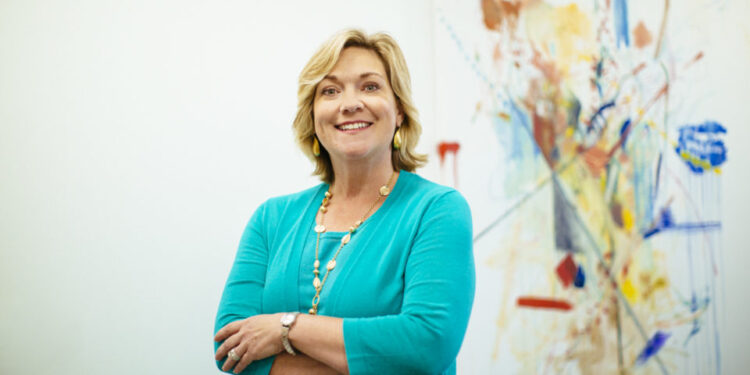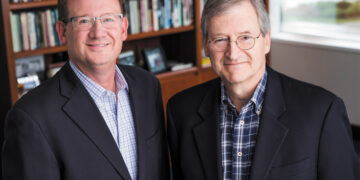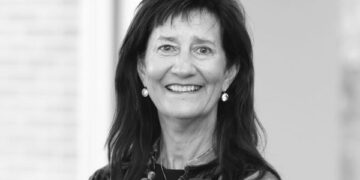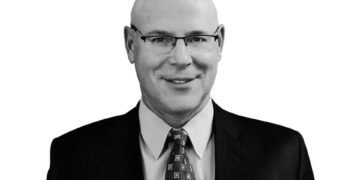Kristin Williams is well-known in the Omaha nonprofit sector—having been a tireless public servant and nonprofit manager for the last 27 years. The energy and focus she puts into her position at the Sherwood Foundation is backed by her breadth of experience. Williams has been a legislative aide to Sen. Elaine Stuhr, a public information officer for the Nebraska Health and Human Services system, communications and marketing director for the Nebraska Hospital Association, a manager of workforce development programs, director of development and marketing for the YWCA Omaha, and has worked in public relations for Gov. Ben Nelson.
Williams joined the Sherwood Foundation in 2006 as director of community initiatives. She manages a diverse portfolio with an eye toward racial and social justice in such areas as child welfare, holistic neighborhood revitalization, housing and homelessness, family economic well-being, civics, and the arts.
She is drawn to, and driven by, a need to help others, whether working or serving on community boards such as that of Seventy Five North.
“Here at 75 North and Highlander, for the first part of our existence we worked hard to get things in place around education and housing, and trying to move the needle in this neighborhood,” said Othello Meadows, executive director of Seventy Five North. “It would have been easy to stay on the same track, but she pushed us to go deeper, and to serve the people who need for us to stand up for the most vulnerable population.”
In addition to Seventy Five North, Collective for Youth, OpenSky Policy Institute, Project Everlast, Connections at Project Harmony, all were aided by the Sherwood Foundation and Williams’ influence. She led the creation of the African American Unity, Futuro Latino, and LGBTQ+ Equality funds housed at the Omaha Community Foundation.
“These were Kristin’s brainchildren,” said Sara Boyd of OCF. “She recognized that people who are a part of those communities are going to have a much deeper connection to meaningful work with them. Too often, people in these communities are not at the table making investments in them.”
Williams approached OCF and said she could help change who is at the decision-making table. She advocated for resources from the Sherwood Foundation and other partners.
“I think her experience and reputation for credibility made it a smoother process than had it been led by someone else,” Boyd said. “Without a real design of the program, we have, over time, been able to think through how these things would unfold and allow some freedom for these things to take shape.”
The communities themselves have embraced this opportunity to make these specialized funds fit while recognizing their values and differing views of the world. Williams, through her work, provided for the opportunity for that flexibility.
“There’s a lot of power in these funds,” Boyd said. “I think it’s created opportunities for people to interact within their own community, but then across different groups that I have seen lead to new and different partnerships, people getting involved in leadership, and the collision of different thoughts that lead to a richer involvement. These are not static groups; we continue to learn alongside the leadership engaged in these funds.”
Because of her work, Williams is a 2017 WCA Tribute to Women honoree, recipient of the Alumni Award for Excellence in Public Service from the University of Nebraska at Omaha, 2014 honoree for Outstanding Nonprofit Administrator by the Nebraska Chapter of American Society for Public Administration, and was named a State Afterschool Champion in 2013 by the Afterschool Alliance in Washington, D.C.
Named for Robin Hood’s Sherwood Forest, the Sherwood Foundation doesn’t steal from the rich and give to the poor, but it does use resources from donors to leverage investments in comprehensive initiatives to create change.
“Susie Buffett is our principal and my boss. I give money away to nonprofits. That’s the easy part of the job,” Williams said. “The hard part is trying to leverage those resources with government sources to create systemic change.”
Williams said the issue of homelessness is a great example of the kind of systemic change that can be addressed to solve chronic societal issues such as this.
“We’re trying to make it so that homelessness is a solved problem in Omaha,” Williams said. “We do that by working with policymakers and providers on creating a vision, then we fund programming to help divert people from going into homeless shelters by getting them into a better place, whether that is available housing or with a family member. That all depends on the individual.”
There is a positive ripple effect on the local economy as employers, as well as employees, benefit from programs designed to help those struggling, Williams said.
“It absolutely impacts employees and employers because oftentimes employees of businesses in town don’t make enough money to get by every month. So we are funding food pantries, rental assistance, and other kinds of supportive services. Most of the people receiving services are working in some capacity,” Williams said. “We also fund financial literacy programming, bike trails, art, and after-school programming. All that supports the workforce because parents who know that their kids are safe after school are going to be better employees.”
Williams takes a holistic approach to solving problems in Omaha that will have lasting effects. Those positive changes create a ripple effect, inspiring long-term change.
r
Visit sherwoodfoundation.org for more information.
rThis article was printed in the December 2019/January 2020 edition of B2B. To receive the magazine, click here to subscribe.













